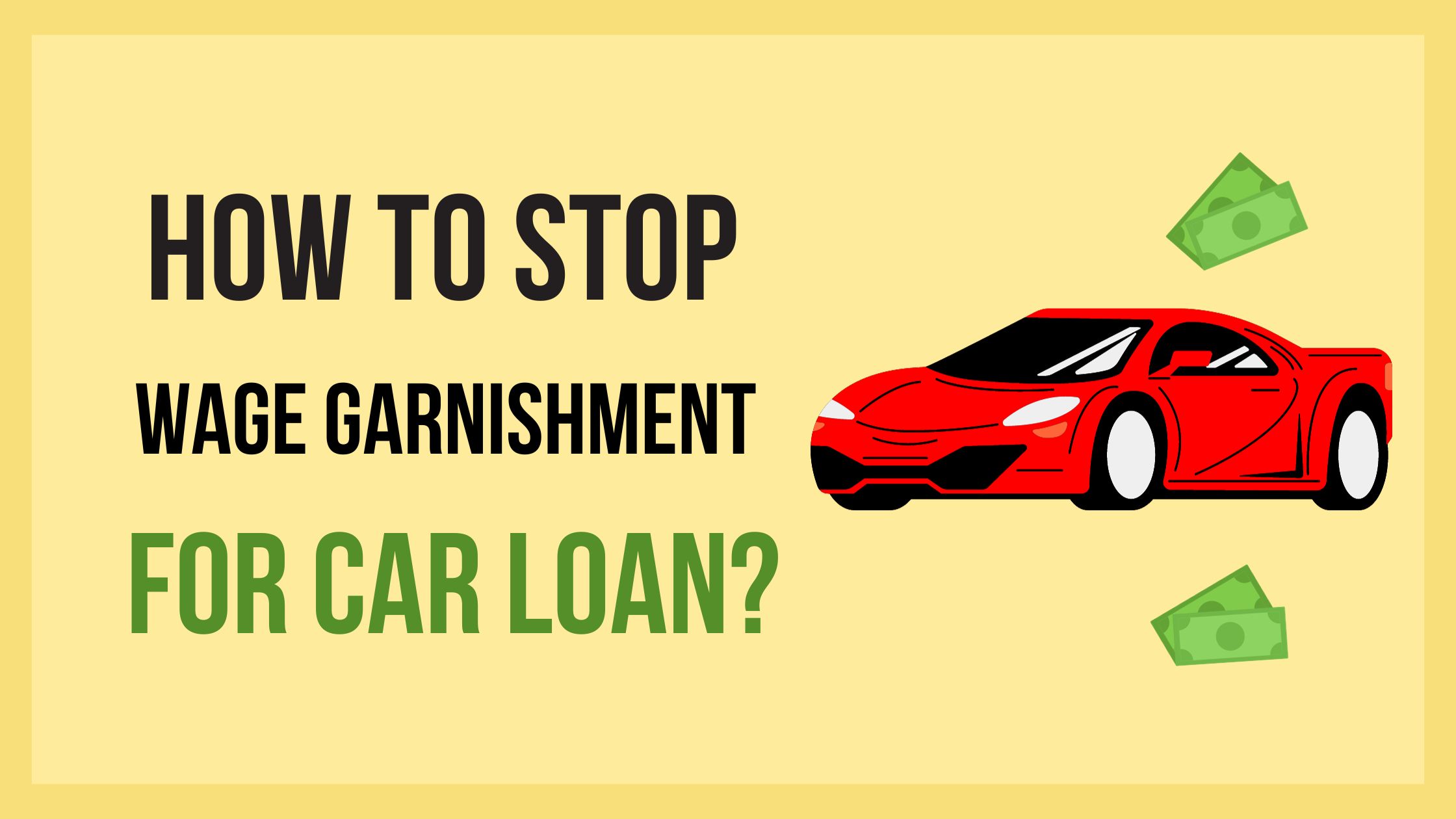Wage garnishment is a legal process that allows creditors to collect unpaid debts by withdrawing funds directly from a debtor’s paycheck. When a creditor wins a garnishment judgment in court, the debtor’s employer may be ordered to withhold a certain amount from each paycheck and send it to the creditor.
Wage garnishment most commonly occurs when you fall behind on payments for certain types of debt, like credit cards, medical bills, private student loans, personal loans, and auto loans. Federal student loans, however, do not utilize wage garnishment. The government can collect unpaid student loan debt through other mechanisms like tax refund offset programs.
For other types of debt, if you miss a certain number of payments (usually between 3-6 months), the creditor can sue you. If they receive a court judgment stating that you owe the debt, they can then legally pursue garnishment of your wages. State laws stipulate the amount that can be garnished – typically between 25-30% of your disposable income.
Wage garnishment will continue until the judgment is satisfied, you reach an agreement with the creditor, or you file for bankruptcy. The only way to stop wage garnishment is to fully repay the debt, negotiate a settlement with the creditor, or file for Chapter 7 or Chapter 13 bankruptcy. Creditors use wage garnishment as a powerful tool to collect on unpaid debts, so it’s best to try to avoid this situation if at all possible.
When Can a Car Loan Lender Garnish Wages?
A car loan lender can legally garnish your wages if you default on your auto loan payments. There are a few scenarios where a lender will pursue wage garnishment:
- Defaulting on payments – If you miss multiple car loan payments, you are considered in default on the loan. Defaulting gives the lender the legal right to take action to recover the amount owed, including garnishing wages.
- Failing to respond to notices – Before garnishing wages, the lender must send you written notices informing you of the default and intent to garnish if you don’t become current on the loan. If you fail to respond or make arrangements after receiving these notices, the lender can proceed with garnishment.
- Having a court judgment against you – The lender can file a lawsuit over the defaulted auto loan and receive a court judgment ordering you to pay the amount owed. If you still don’t pay, the court judgment allows the lender to pursue wage garnishment to collect what you owe per the judgment.
So in summary, stopping payments on your car loan, ignoring the lender’s notices, and allowing the situation to progress to a court judgment can make you legally vulnerable to wage garnishment if you still owe money on the loan.
How Much Can Be Garnished for a Car Loan?
Federal and state laws limit the amount that can be garnished from your paycheck for a car loan debt. The federal limit is the lesser of:
- 25% of your disposable earnings (after-tax income)
- The amount your disposable earnings exceed 30 times the federal minimum wage
So if your disposable weekly earnings are $500, and the federal minimum wage is $7.25, the maximum that could be garnished would be 25% of $500, or $125. This is because 30 x $7.25 = $217.50, and your disposable earnings exceed that by more than $125.
State laws may offer additional protections, so the amount garnished could be less. For example, some states cap the maximum at 20% or 10% of disposable earnings.
If you have multiple garnishments from different creditors, the law also limits the total amount that can be garnished to 25% (or a lower state limit). The 25% maximum would be allocated proportionately among the creditors based on the size of each debt.
So in summary, federal law limits car loan wage garnishment to the lesser of 25% of your disposable earnings or the amount exceeding 30 times the minimum wage. State laws may offer further protections. And if you have multiple garnishments, the total for all debts is capped at 25%.
Notice Requirements Before Garnishment
Before a lender can initiate wage garnishment proceedings for a car loan, they must provide you proper notice. The lender typically sends written notice indicating that you have defaulted on your loan payments. This first notice gives you a chance to catch up on payments to avoid further action.
If you fail to become current on the loan after the initial default notice, the lender will send an advance notice about impending wage garnishment. This gives you a final warning that they plan to contact your employer to garnish your wages for repayment.
The lender must send the warning notice a minimum of 30 days before contacting your employer. This gives you time to try to resolve the issue before garnishment begins. Some state laws may require an even longer notification period such as 45 or 60 days.
It’s important to take action immediately if you receive an advance notice about possible wage garnishment for your car loan. Contact the lender to see if you can work out an alternative payment plan, negotiate a settlement, or find another solution. Avoid ignoring the notice because the lender can proceed with garnishment after the minimum timeframe passes. Knowing the notification requirements can help you act before the garnishment takes effect.
Stopping Garnishment by Paying Off Loan
One of the most straightforward ways to stop wage garnishment for a car loan is to pay off the remaining balance owed. This will immediately satisfy the debt and require the lender to cease garnishment efforts.
To accomplish this, you will need to gather enough funds to cover the remaining principal, any applicable interest, and late fees on the loan. While paying it off ends the garnishment, it does not necessarily cancel out interest and fees accrued prior. Those may still need to be paid unless the lender is willing to waive them.
Once you have paid the required amount, be sure to get written confirmation from the lender that they have received the payment in full and that the debt obligation is satisfied. This signed document will prove the wage garnishment order is no longer valid and needs to be halted. Provide copies to your payroll department and the court that issued the order if necessary.
Paying off the car loan balance is often the quickest and easiest path to stopping wage garnishment. But it requires you to have access to enough funds to cover what remains owed. Explore all options to obtain the money, including borrowing from family or friends, taking funds from savings, applying for a debt consolidation loan, or even selling assets.
Negotiating With the Lender
If you are facing wage garnishment for a car loan, negotiating with your lender can be an effective way to stop the garnishment. Here are some tips for negotiating:
- Request affordable payment plans: Explain your financial hardship to the lender and request a more affordable monthly payment plan that works within your budget. Propose extending the loan term or lowering payments until you can get back on your feet.
- Propose settlements for lump sum payments: You may be able to negotiate a discounted lump sum settlement, where you pay a portion of the remaining loan balance. This completely settles the debt. Make sure to get any settlement agreement in writing from the lender before paying.
- Get agreements in writing: If the lender verbally agrees to stop the wage garnishment in exchange for an alternate payment plan, be sure to get the agreement in writing. Signed agreements are legally binding and help prevent misunderstandings.
Negotiating directly with your auto lender can help you avoid wage garnishment or get the garnishment stopped. Come prepared with financial documentation, and be willing to compromise. With written agreements on new payment arrangements, you can stop creditor collection efforts like wage garnishment.
Filing for Bankruptcy to Stop Wage Garnishment
Filing for bankruptcy can stop wage garnishment for a car loan in most cases. This is because filing bankruptcy automatically triggers an “automatic stay,” which prohibits creditors like auto lenders from trying to collect debts outside of the bankruptcy proceedings.
There are two main types of personal bankruptcy that can help stop wage garnishment for a car loan:
- Chapter 7 bankruptcy – This type of bankruptcy liquidates your assets to pay creditors. Any remaining unpaid debt after your non-exempt assets are sold, including the balance on a car loan, is discharged. This makes future wage garnishment for that debt illegal.
- Chapter 13 bankruptcy – This is more commonly used for stopping car loan wage garnishment. It allows you to keep assets like your car while repaying some or all of the loan balance through a 3-5 year structured repayment plan approved by the court. This requires you to have regular income to make the plan payments.
The costs to file for bankruptcy are the court filing fees, which range from $300 to $335, as well as attorney fees if you hire one to handle the process. To qualify for either Chapter 7 or Chapter 13 bankruptcy, you must pass a means test showing your income is below the median level in your state. Overall, bankruptcy can be an effective last resort to halt wage garnishment for a car loan you cannot pay, but it comes with significant long-term financial consequences that should be carefully weighed.
Contesting the Wage Garnishment
If you believe the wage garnishment order is improper or invalid, you may be able to contest it in court. Here are some potential grounds for contesting wage garnishment for a car loan:
- Improper notice – Federal law requires you receive notice of intent to garnish wages at least 30 days in advance. If you didn’t receive proper notice, the garnishment may be invalid.
- Mistaken identity – If the creditor has the wrong person and you don’t actually owe the debt, you can challenge the garnishment.
- Incorrect calculation – You can contest the garnishment if too much of your wages are being withheld beyond legal limits.
- Expired statute of limitations – If the debt is too old, the creditor may no longer have legal grounds to collect on it.
- Bankruptcy discharge – If the debt was discharged in bankruptcy, the creditor cannot garnish wages for it.
- Lender error – You can contest the garnishment if there was fraudulent, misleading, or erroneous information that led to the wage garnishment.
To contest the wage garnishment, you’ll need to file a petition with the court that issued the order. You can contact the clerk of court for the proper petition forms and filing procedures. Make sure to clearly state the grounds for your objection.
It’s advisable to seek legal aid or consult an attorney when contesting wage garnishment. They can review your case and help determine if you have valid grounds. Legal aid organizations may be able to provide assistance for free if you meet income requirements.
With the help of an attorney, you may be able to get the garnishment stopped, reduced, or dismissed if it is successfully contested in court. But it’s important to act promptly once receiving notice of intent to garnish wages.
Alternatives to Full Payment
If you are unable to pay off your car loan in full to stop wage garnishment, there are some alternatives that may help:
Loan Modification
You can request a loan modification from your lender. This involves changing the terms of the loan to make it more affordable for you. For example, you may be able to extend the repayment period to lower the monthly payments or have the interest rate reduced. If approved, this can stop wage garnishment.
Refinancing
Refinancing your car loan involves taking out a new loan to pay off the existing one. You’ll want to shop around to see if you can find a lender willing to offer you a lower interest rate or better terms than your current loan. If you’re able to refinance into a more affordable monthly payment, you may be able to avoid wage garnishment.
Voluntary Repossession
With this option, you voluntarily surrender your car to the lender. They will sell the car and apply the proceeds towards your loan balance. You may still owe money after they sell the car if you are upside down on the loan. While this damages your credit, it does stop further wage garnishment. Just make sure the lender agrees to stop garnishment once they have possession of the vehicle.
If you’re facing wage garnishment for a car loan, explore all options with your lender. Communication is key to finding a workable solution and avoiding continued paycheck deductions. Consider seeking help from a credit counseling agency as well.
Preventing Future Wage Garnishment
Once you’ve stopped a wage garnishment, it’s important to take steps to prevent it from happening again in the future. Here are some tips:
- Create a budget and stick to it. One of the best ways to avoid future financial troubles is to have a detailed budget that accounts for all your expenses and income. Identify areas where you can cut back on spending and allocate money towards savings. Having an emergency fund can help you avoid falling behind on bills if an unexpected expense comes up.
- Pay all bills on time. Payment history makes up a significant portion of your credit score. Set up alerts and reminders to pay bills before their due date. Avoid late fees and damage to your credit by staying on top of payments.
- Pay down debts. Focus on paying down high-interest debts first, while making minimum payments on other accounts. Once you’ve paid off a debt, put the money you had been paying towards it into savings or towards the next debt. Reducing overall debts improves your credit utilization ratio.
- Check your credit report. Get a free copy of your credit report from AnnualCreditReport.com and dispute any inaccuracies. Mistakes on your report could negatively impact your ability to get credit. Monitoring your credit helps detect fraud or identity theft.
- Improve your credit. In addition to paying bills on time and reducing debts, you can take steps like becoming an authorized user on someone else’s account or taking out a credit builder loan to rebuild your credit. It takes time, but improving your credit increases your ability to qualify for loans with better terms in the future.
- Build up savings. Having cash savings on hand means you won’t need to rely on credit as much to cover emergency expenses. Automate transfers from your paycheck into a high-yield savings account so the money is tucked away before you can spend it. Aim to eventually have 3-6 months’ worth of living expenses saved.
Taking proactive steps to manage your money wisely and repair your credit can help prevent your wages from being garnished again down the road. Be patient and persistent in improving your financial habits.



